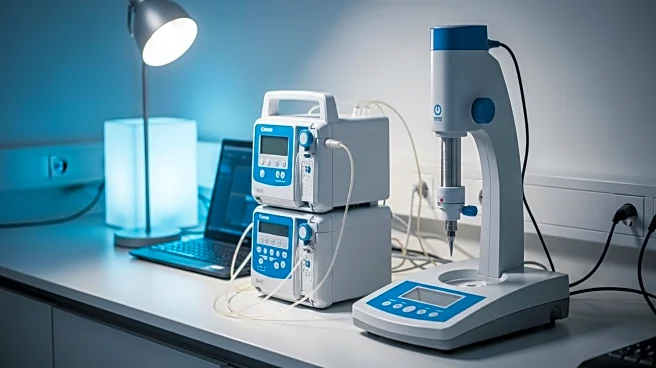What is the story about?
What's Happening?
The 2nd ADC Pharmacokinetics & Clinical Pharmacology Summit is set to bring together leaders in pharmacokinetics, bioanalysis, pharmacometrics, and clinical pharmacology to tackle pressing industry challenges. The summit will focus on translating preclinical pharmacokinetic data into predictive first-in-human dose selection, addressing dosing considerations for novel and complex ADC formats, and strategizing dosing in combination settings. Participants will engage in discussions and knowledge sharing to support better dosing decisions in ADC pharmacokinetics and clinical pharmacology, aiming for more efficient delivery of safe and efficacious ADCs to patients.
Why It's Important?
The summit is crucial for advancing the field of clinical pharmacology, particularly in the development and optimization of Antibody-Drug Conjugates (ADCs). By focusing on dose optimization and modification, the event aims to improve the safety and efficacy of ADCs, which are increasingly used in cancer treatment. The collaboration and knowledge sharing among industry leaders can lead to innovative solutions and strategies, potentially accelerating the development of new therapies and improving patient outcomes. The summit also highlights the importance of integrating real-world data and case studies into pharmacokinetic research.
What's Next?
Following the summit, participants are expected to implement the strategies and insights gained into their respective research and development projects. The focus on dose optimization may lead to advancements in ADC therapies, potentially resulting in new clinical trials and drug approvals. The industry may see increased collaboration and partnerships as stakeholders work together to address the challenges discussed at the summit. The outcomes of the summit could influence regulatory guidelines and best practices in ADC pharmacokinetics and clinical pharmacology.
Beyond the Headlines
The summit's emphasis on dose optimization and real-world data integration reflects broader trends in personalized medicine, where treatments are tailored to individual patient needs. This approach can lead to more effective therapies with fewer side effects, improving patient quality of life. The focus on collaboration and knowledge sharing also underscores the importance of interdisciplinary approaches in solving complex pharmacological challenges, fostering innovation and progress in the field.















